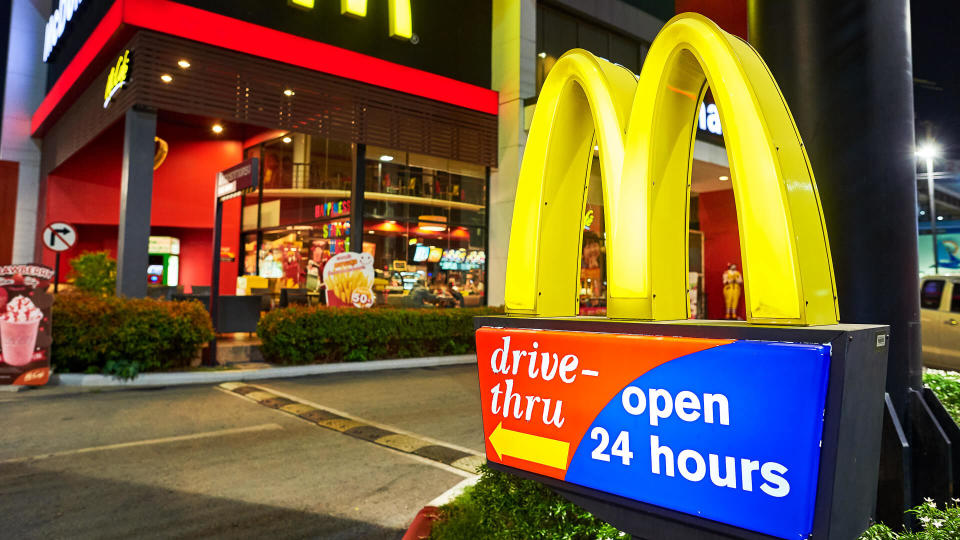6 Benefits of Investing in a Franchise

If you’re blessed with the entrepreneurial spirit, but you don’t have the will or the wisdom to build a business from the ground up, consider the benefits of buying into one that’s already built. From KFC and 7-Eleven to Ace Hardware and Marriott, many of the biggest chains are franchise operations run by independent owners.
See Our List: 100 Most Influential Money Experts
Small Business Spotlight 2022: Nominate Your Favorite Small Biz by July 25
In other words, the franchise path to entrepreneurialism lets you own a Burger King without having to create the next Burger King yourself.
“Investing in a franchise helps new business owners start on third base rather than first,” said Denise Iacona Stern, CEO of Let Mommy Sleep Franchising. “With systems for marketing, management and bookkeeping already in place, franchisees skip the trial-and-error phase to get right to profit.”
Here are just a few ways franchisees have a leg up on business owners who do it the old-fashioned way.
Franchisees Hit the Ground Running With Turnkey Businesses
Franchisees have to make large upfront investments because much of the hard work has already been done. Traditional entrepreneurs start with an idea and build from there. Franchisees, on the other hand, buy just-add-water businesses.
“The No. 1 benefit of purchasing a franchise is that you do not have to be a business expert,” said Dan Shepherd, CEO and owner of technology and construction firm VEI Communications. “In other words, you don’t need to have the entrepreneurial experience to run a franchise. That’s because the franchisor will provide you with the necessary facilities needed to operate the business. This may include things such as equipment, staff training, and an advertising plan, to name a few.”
Brand-Building Is Already out of the Way
If you open a burger stand, you have to let people know who you are and what they can expect when they walk through the door — unless that burger stand happens to be a McDonald’s.
“Becoming a franchisee is a profitable path to entrepreneurship because the franchise already has an established reputation and loyal customers,” said Shepherd. “Having an already set customer base means you won’t have to develop strategies to drive traffic and boost sales because it’s already a given.”
Amy Wampler, CEO of Spartan Mechanical, agrees.
“New franchisees do not have to create a name from scratch,” she said. “Instead, they merely have to maintain a reputation, which is undoubtedly easier. And with an already popular brand name comes a ready-made customer base that start-ups can only dream of.”
Take Our Poll: Do You Have a Side Gig or Other Hustle?
Small Business Ownership Is a Scary Path To Walk Alone
The best business school on Earth could never prepare entrepreneurs for the gauntlet they’re about to walk. The path to owning a business is a minefield filled with unknowns that you traverse by yourself — unless you’re a franchisee.
Unlike independent business owners, they don’t go it alone.
“When entrepreneurs set out on their journey, they’re doing everything alone and have little guidance to show them the way,” said Patrick Wilson, hiring director of Skill Courses. “Only a small percentage of entrepreneurs hire consultants and experts to guide them. With franchising, you get direction, information, advice and suggestions from the parent company. You follow an already proven business model and only have to take care of the day-to-day.”
The Franchise Model Has a Higher Success Rate and Less Risk
According to Forbes, about four out of five small businesses survive their first year, which is good. After that, however, the rigors of entrepreneurialism start taking their toll. Half won’t make it past five years and only about one in three will survive their first decade.
Reliable statistics for franchisees are much harder to come by. The experts GOBankingRates interviewed could only agree that no matter the percentage, there’s no doubt that franchisees have much higher long-term success rates than independents.
As far as Wampler is concerned, the reason why is clear.
“Simply put, franchising exposes you to less risk,” she said. “Being associated with an established brand also gives franchise access to more capital because investors prefer putting their money into running businesses. For these reasons, a franchise has a much smaller failure rate, making it a safer alternative to entrepreneurship.”
You’re the Boss, but You Receive Training Like an Employee
Trial and error is part of starting a business — business owners, after all, learn as they go. That’s not the case for franchisees. They learn by following training programs that their franchisors created just for them.
“The biggest benefit of investing in a franchise is gaining access to predesigned training programs,” said Brandon Walsh, founder of Interly. “It gives you valuable insights into how a company has been running successfully over the years. It can further help you understand the marketplace better and be innovative in the future.”
You’re an Instant Marketing and Advertising Powerhouse
Regional and national chains commission slick and well-coordinated marketing campaigns that include television and social media advertising, merchandising and live events. For the biggest franchisor companies, those live events could include the Super Bowl or Wimbledon.
Your local furniture store, on the other hand, likely has campy TV ads starring the owner’s children.
“One key benefit is that you’ll have access to the franchise’s marketing and advertising resources,” said Daniel Chen, chief product director at Airgram. “This can be a big help in getting your business up and running, and in growing your customer base so you can focus on running your business instead of worrying about how to promote it.”
More From GOBankingRates
This article originally appeared on GOBankingRates.com: 6 Benefits of Investing in a Franchise

 generic
generic 